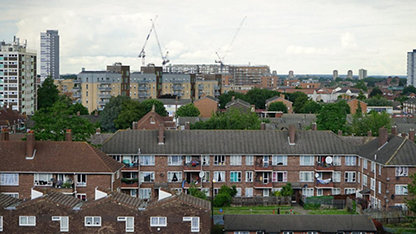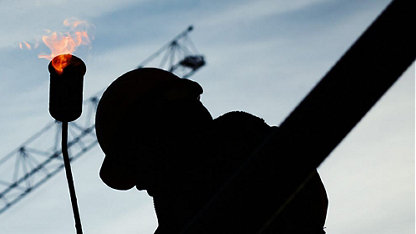This page contains advice for the public, building owners, landlords, corporates, occupiers and RICS professionals with information on fire safety in buildings, including those with external wall systems.
Amongst all of the information available on this page, RICS professionals can find the latest industry guidance and news on fire safety, including valuing properties with cladding and professional indemnity insurance.
Building owners and landlords can access information on requirements and standards related to fire safety.
Members of the public can understand more about the EWS1 process, find out how RICS is involved in global standards for fire safety, and access the latest Government advice.
Grenfell Tower fire
Publication of the Grenfell Tower Inquiry Phase Two report, 4 September 2024
Grenfell was unforgiveable, a result of collective failure, a tragedy that impacted people and families and those that came to help them. We welcome the report’s recommendations released today, as another crucial step forward in ensuring our housing stock is safe for all.
RICS will, alongside our members, play our part in putting the recommendations into practice. Working with all parties we will continue to strengthen expertise and understanding of building and fire safety issues through continuous learning and skills improvements, alongside improving standards.
Through the inquiry there have been many lessons and now they must be implemented so that this can never happen again.
Supporting our members to take action
RICS is working to support members to understand the implications of the report, and act to make changes required to meet the relevant recommendations.
As an immediate response, two webinars hosted by our Fire Safety working group will take place in the coming days and weeks. Find out more and sign up for these webinars here: MEE-GRFLL-060924 | Online Academy (rics.org).
Latest Fire Safety News
Consult the latest advice given by the UK Government
- Advice for residential tenants and the general public
- Scottish Advice Note: Determining the fire risk posed by external wall systems in existing multi-storey residential buildings
- Fire Safety Act 2021 was implemented on 16th May 2022
- Fire Safety Act 2021 - Gov.uk
- The Building etc. (Amendment) (England) Regulations 2022
- Consult the latest advice given by the UK Government: Fire Safety (England) Regulations 2022 which come into force 23 Jan 2023
- Fire Safety (England) Regulations 2022: fire doors
- Building Safety Act 2022 and secondary legislation relating to fire safety inc commencement orders
- S.156 Building Safety Act 2022 comes into force 1 October 2023. This makes a number of amendments to the Regulatory Reform (Fire Safety) Order 2005
- Fire Safety (England) Regulations 2022: fire doors
- People with duties under fire safety laws
- Fire Safety Order: enforcement and sanctions for non-compliance
- Check your fire safety responsibilities under Section 156 of the Building Safety Act 2022
- Check your fire safety responsibilities under the Fire Safety (England) Regulations 2022
- UK Goverment publish long awaited independent report on construction product safety testing
Downloads
Published date: 07 June 2021
Published date: 01 May 2018
Published date: 17 October 2019
HSE Fire safety in construction guidance
A guide to making your small block of flats safe from fire
A guide to making your small paying guest accommodation safe from fire
Making your small non-domestic premises safe from fire
Fire safety risk assessment: 5-step checklist
Prioritise updating your fire risk assessments as a Responsible Person
Valuation
The latest industry guidance and news from RICS on valuing properties with cladding.
Latest valuation news
Practice Alert
RICS issues Practice Alerts, such as this, from time to time.
This is an important component of RICS’ regulatory role, which includes guiding the profession, and ensuring work undertaken by RICS Members and Registered Firms complies with RICS’ Rules of Conduct.
This Practice Alert relates to the RICS, UK Finance and BSA External Wall Fire Review Process (EWS) launched on 16 December 2019. As a newly introduced process, and as one of interest to the wider public, we wanted to emphasise some of the technical aspects, and as such the importance of RICS Members and Registered firms ensuring they are competent to undertake this work before doing so.
RICS Members and Registered Firms operating in this area are reminded of their professional obligations, under Rule 4 within RICS Rules of Conduct for Firms and RICS Rules of conduct for members, to possess the necessary competency in this specialist field*.
Those involved in the EWS process must have sufficient expertise to identify the relevant materials within the external wall and attachments, and whether fire resisting cavity barriers and fire stopping have been installed correctly if completing Option A of the Form, in addition, for Option B, expertise in the assessment of the fire risk presented by external wall materials.
We advise Registered Firms to contact their insurance broker when taking on new areas of activity to ensure it will not impact their ability to maintain adequate and appropriate professional indemnity insurance cover under Rule 9.
*A firm shall carry out its professional work with due skill, care and diligence and with proper regard for the technical standards expected of it.
Members shall carry out their professional work with due care, skill and diligence and have proper regard for the technical standard expected of them
Cladding External Wall System (EWS) FAQs
The external wall system (EWS) is made up of the outside wall of a residential building, including cladding, insulation, fire break systems, etc.
The EWS1 form is designed to be used for residential properties such as blocks of flats (including those owned by housing associations and social housing providers as well as privately owned), student accommodation, dormitories, assisted living, care homes and Houses in Multiple Occupation (HMOs).
The EWS1 form is not specifically designed for use of short-term accommodation such as hotels. EWS1 does, however, apply to an entire building or block so where required, may also be relevant to mixed use.
The EWS process, and resulting form, is a set way for a building owner to confirm that an external wall system on residential buildings has been assessed for safety by a suitable expert, in line with government guidance.
The EWS1 process delivers assurance for lenders, valuers, residents, buyers and sellers. The process was developed through extensive consultation with a wide range of stakeholders including fire engineers, lenders, insurers, valuers, and other cross industry representatives.
The process itself involves a "qualified professional" (see download on this page) conducting a fire-risk appraisal on the external wall system, before signing an EWS1 form, which is valid for the entire building for five years.
The form was originally designed following Government advice regarding external wall systems for buildings above 18m and was created to ensure residential buildings over 18m tall could be assessed for safety to allow lenders to offer mortgages. Changes in Government advice in January 2020, brought all residential buildings of any height potentially within scope.
However not every building will require an EWS1 form. RICS has published proportionate guidance for valuers on 8 March 2021 and is working with UK Government and other stakeholders to ensure the guidance is implemented post the effective date of 5 April 2021. This guidance includes criteria that will be used to help decide whether a particular building should need an EWS1 form. Valuers will always need to follow instructions given by their lender clients.
The criteria considers the height of the building, the type of cladding and (in some circumstances) how much of it there is on the building. There are also criteria relating to balconies and combustible material. You should always have a rationale to justify the request for the EWS1 form.
This Act closes the loophole that the Regulatory Reform (Fire Safety) Order 2005 had overlooked 16 years ago - on the need for the external walls of a building and fire doors to individual flats to be assessed as part of the requirement for a Fire Risk Assessment (FRA) of the building.
Now there can be no question (in England & Wales) that from now on, the Responsible Person has a legal responsibility to commission an updated FRA with the external walls and fire doors assessed too.
Until such time as all relevant buildings have updated FRAs with EWS assessments, we envisage that there will still be a need for an EWS1 Form to inform lenders and valuers if there are any likely remediation costs affecting value.
If under the Fire Safety Act’s new requirements, remedial works are identified, this is likely to have an impact on the value of a home depending on the cost and/or the liability for payment for the remediation works.
Valuers will need to be aware of any new updated FRA with an EWS assessment on the subject property, and also the properties being used as comparable evidence.
No, they remain valid until such time as a new EWS1 form or updated fire risk assessment including an EWS appraisal is completed.
RICS is aware of blocks of flats where more than one EWS1 Form has been produced. RICS is also aware that Government have advised, under ‘Ministerial Statement (HCWS228) on building safety in medium and lower-rise blocks of flats’ announced in Parliament on 21st July 2021’ that there are recommendations to review all existing EWS1 forms. The building owner is responsible for clarifying which EWS1 Form is current, whether the form is still required, or why more than one form was produced which will normally explain the situation. If needed, the building owner should refer to the professionals involved and where appropriate through the firm’s formal complaint handling procedures.
RICS regulated firms are required to have a formal complaints handling procedure in place and are subject to regulatory oversight. Where there are concerns over a RICS member or firm’s competence or conduct, these can be raised through our formal regulatory process.
RICS can not become involved in professionals registered with other bodies.
Key documents
Published date: 16 March 2022
Published date: 28 July 2022
Published date: 01 March 2021

International Fire Safety Standards
Find out more about the UN adopted international standard that is helping the construction and real estate sectors reduce the risks of fire.
International Fire Safety Standards news
Professional indemnity insurance
Follow as we work with Government and the insurance sector to develop an appropriate professional indemnity insurance for chartered surveyors carrying out EWS assessments
Information for consumers
Understand the EWS process and view the latest Government advice.
UK Fire Safety Conference 2024
Note these dates in your diary, as we are back on the 15th and 16th October 2024.
With new building fire safety legislative requirements, new regulations are drastically changing the way we ensure building fire safety and drive the delivery of better, safer, and more sustainable buildings.
Hear from industry experts in sessions including the latest and critical updates on fire safety, including delving into a practical application update of PAS9980, and explore key learnings from industry experts.
Use this link to access 7 hours of formal CPD.
Page updated 09 October 2024.





























